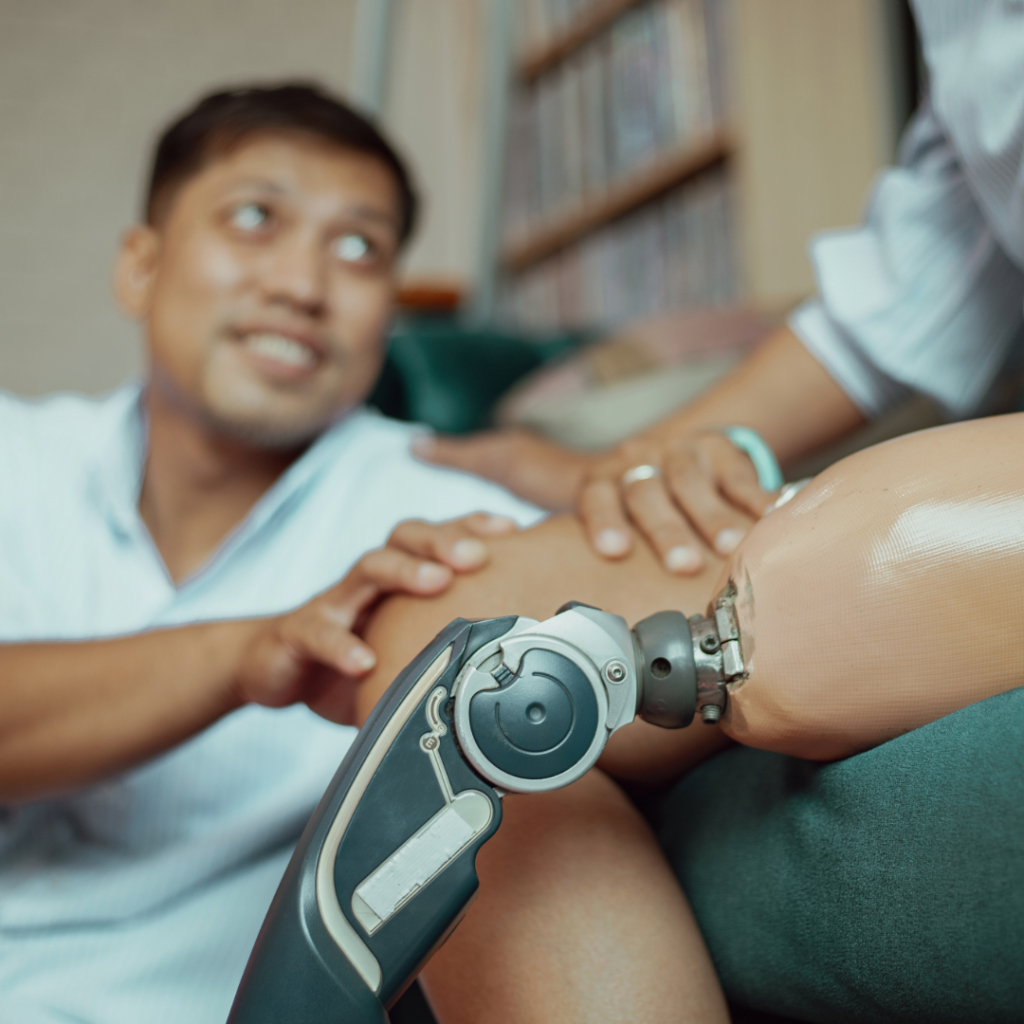A serious car accident can be a traumatic experience, causing emotional as well as physical harm. Amputation of a limb, toe, or finger has to be one of the most traumatic injuries a driver or passenger can suffer in a car accident.
Amputation injuries require extraordinary levels of medical care, including multiple surgical procedures and extensive rehabilitation. Depending on the type of amputation injury, it may adversely affect your personal life and occupation.
When a car accident is the fault of another person, Florida personal injury laws give you the right to claim compensation that includes recovery of the cost of medical care, lost or diminished earning capacity, and damages from physical and emotional pain and suffering. The following explains your rights in case of an amputation injury in an accident.
Traumatic amputation
The loss or removal of a finger, toe, hand, foot, leg, or arm is an amputation. Some are necessitated by disease, infection, or a medical condition requiring surgical removal of a body part. Traumatic amputation occurs as a result of an accident that causes a limb or other body part to be severed or torn away.
Approximately 45% of amputations are caused by trauma. However, a body part may be so damaged in an accident that it cannot be saved. For example, burn injuries, crushing injuries, or infection caused by trauma may leave a body part so damaged that it cannot be saved. If that should occur, doctors may have no choice other than surgical amputation.
Causes of traumatic amputation
Car accidents are a common cause of amputation injuries. Metal and glass materials in cars and other motor vehicles create sharp edges that can partially or fully sever fingers, toes, and other body parts. The weight of motor vehicles can cause crushing injuries, particularly in rollover accidents when a driver or passenger is pinned beneath a car, requiring surgical amputation of the damaged body part.
Other types of accidents that may cause amputation injuries include:
- Dog and animal bites.
- Lawnmowers, power tools, and other types of power equipment.
- Defective consumer products
- Workplace accidents
- Fireworks
Wearing seatbelts when riding in a motor vehicle and using power tools and equipment, including lawnmowers, according to manufacturer instructions, reduces the risk of accidents and injuries. Avoiding fireworks and not approaching dogs or other animals can reduce the risk of harm caused by an explosion or being bitten.
Medical care and aftermath of an amputation injury
If saving a damaged body part is not possible, surgeons cover the location of the amputated body part with skin. When the plan calls for a patient to eventually be fitted with a prosthetic device, surgeons prepare the area by padding it with soft tissue for comfort.
Someone with an amputation injury may experience the following symptoms:
- Amputation, either surgical or traumatic, can cause severe pain during recovery. Doctors have a variety of pain control regimens to use to control post-amputation pain.
- Phantom limb sensation is common among patients following an amputation injury or surgical amputation. Patients may experience sensations of the missing limb being present. The cause of phantom limb sensation is unknown, but physicians believe remaining nerve connections cause it.
- Patients may experience an increased fall risk when they lose a leg or foot. Doctors believe the risk comes from a patient forgetting about the amputation, so placing a wheelchair near the bed can remind a patient to exercise extra care when attempting to stand. Rehabilitation therapy also helps a patient adjust to the loss of a limb to reduce the risk of falling.
Amputation injuries can also cause emotional conditions, including post-traumatic stress disorder, depression, and anxiety.
Damages recoverable for an amputation injury
The party whose negligence caused an amputation injury can be held liable for payment of compensation to the injured person, including the following:
- Current and future medical expenses.
- Rehabilitation and occupational therapy expenses.
- Wages lost from being out of work during recovery.
- Diminished or lost future earning capacity.
- Disfigurement.
- Emotional and physical pain and suffering.
- Lost and diminished enjoyment of life.
Depending upon the facts of a case, an injured person may be awarded punitive damages.
Help from a Tampa car accident lawyer for amputation injuries
The experienced car accident attorneys at KFB Law have years of experience and outstanding skills needed to aggressively fight for justice and fair compensation for accident victims with amputation injuries. Learn more about how KFB Law can make a difference in the outcome of your claim by contacting them today for a free consultation.



